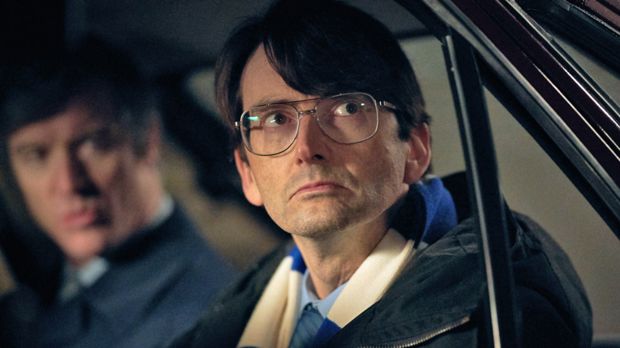
David Tennant says TV drama Des 'does not celebrate' killer Dennis Nilsen
by Ian YoungsDennis Nilsen was one of Britain's most notorious serial killers. David Tennant explains why he played him in a new TV drama as "boring".
The main mystery in any TV drama about a murder - or murders - is usually whodunit. If not, it's howdunit.
Those two questions are cleared up early in the first episode of ITV's Des, which takes its title from the nickname for Dennis Nilsen, who killed at least 15 young men in the late 1970s and early '80s.
Nilsen, as portrayed by David Tennant, is apparently very co-operative when asked to help the police with their enquiries after human bones are found blocking his drains.
So the question that's left is whydunit.
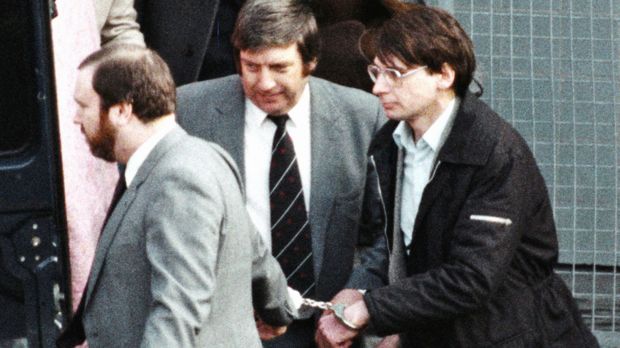
Nilsen was 37 when he was arrested at his north London home in 1983. At the time, he was working in a Job Centre, following stints in the police and the Army catering corps.
"Of the few people I met who had personally known him, one of the most frequent descriptions seems to be that he was actually rather boring," Tennant says. "It certainly would seem that those who worked with him at the job office found him pleasant enough. Sometimes he would drone on a little, but there was certainly nothing extraordinary, apparently, about this man.
"So you're trying to make sense of who that human being is to the outside world, and link it up to this extraordinary private life at home, which had bodies rotting under his floorboards, and which was about luring people back to his flat, where he seemed to have no compunction about taking the life of a young man who just came home for a bit of supper and a chat."
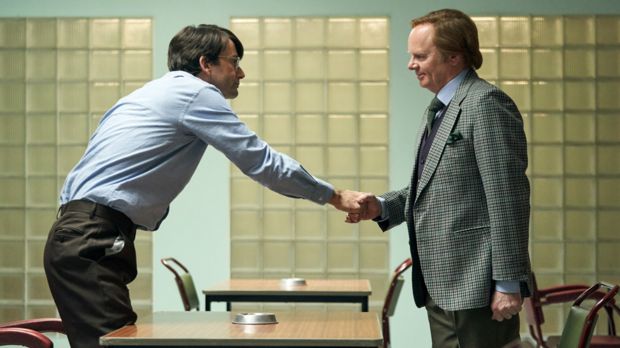
Many of Nilsen's victims were homeless and vulnerable. Nilsen himself tried to explain the roots of his "destructive binges" in letters to police that were read at his trial.
"It would be better if my reason for killing could be clearly defined, ie robbery, jealousy, hate, revenge, sex, blood lust or sadism," he wrote. "But it is none of these."
At his trial, prosecutors described him as a cunning and resourceful murderer who had killed for pleasure.
Tennant gives a remarkable performance as an apparently unremarkable man who - superficially - doesn't fit the "evil monster" tabloid mould. As author Brian Masters, played by Jason Watkins, puts it at one point in the programme: "That's what makes the whole thing so intriguing - this dichotomy between this seemingly normal, unobtrusive civil servant and the nature of his crimes."
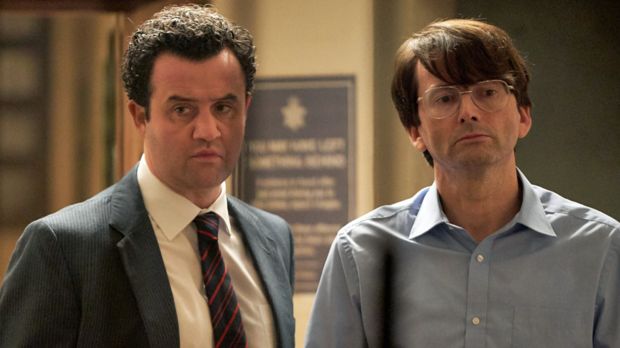
For research, Tennant studied footage and books, as well as speaking to people who knew the killer. Luke Neal's script "presented this character who will remain forever unknowable, I suspect", the actor says. "Then you try and sort of join the dots as best you can and present something that will look like a truth. Without pretending to understand everything about who Nilsen was and why he did what he did, you hopefully can assemble something that will illuminate the unilluminatable."
While that sounds like a tall order, Tennant gives a convincingly deadpan portrayal. It's proof, if it were needed, of the former Doctor Who star's range. He recently won lockdown with two comic appearances - in Staged, the brilliant long-distance double act with Michael Sheen, and a TikTok-inspired reunion with Catherine Tate for the BBC's Big Night In.
Des also features superb performances from Watkins as Nilsen's biographer, and Daniel Mays as dogged Detective Chief Inspector Peter Jay.
"There's always the added pressure when you're playing a real person, particularly in a story like this," Mays says. "You want to do the story justice."
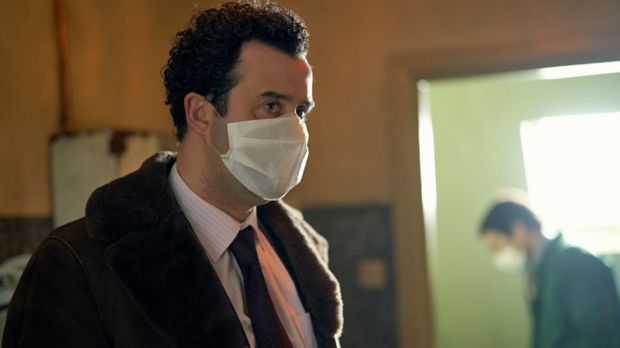
Watkins also knows about playing real-life characters, including Prime Minister Harold Macmillan in The Crown and the Bafta-winning title role in The Lost Honour of Christopher Jefferies. Des, he says, is intended to be "a huge acknowledgement of the victims and their families' pain".
Although about 40 years have passed since the murders, the pain will be largely undimmed for the relatives. The brother of one victim has complained that the drama is "trying to glorify a murderer".
Tennant says producers spoke to the families of Nilsen's victims to make them aware of the programme and the intentions behind it.
Pain 'still raw'
"It's something that everyone was always very keenly aware of," he says. "This is recent history, this is all within our lifetimes that this happened, and therefore a lot of the legacy of pain that Nilsen caused is still pretty raw."
The programme has been made "in no way to celebrate the macabre, but to memorialise the victims as much as anything", the actor insists.
"That's one of the reasons for telling this story. Of course, when you do a story like this, everyone involved is very aware that you have to tread carefully and that you must be sensitive to the variety of reactions that it will provoke."
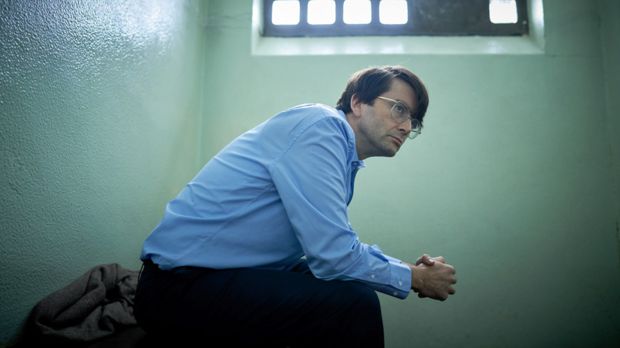
Nilsen died in jail in 2018. Tennant says they were "quite keen to make sure we didn't buy into" his own notion of notoriety. That's a fine line to tread in a high-profile prime-time mini-series with him at its centre.
"I think Dennis Nilsen himself became rather obsessed with his legacy after he was caught," the star says. "Anyone who had known him at all, it seemed, said he was at best unremarkable and at worst bloody boring to be around. And yet, If you read his own writings about himself, the self-aggrandisement and the narcissism is breathtaking.
"Clearly, one of the extraordinary things about this story is that he killed so many people without anybody apparently noticing, and that nobody in his life raised an alarm, and it could go on for the number of years that it did.
"That's one of the things that I think a drama like this can help us all unpick. How does a human being like this come to be, and how do they travel undetected for as long as he did?"
Des is on ITV in three parts from Monday 14 to Wednesday 16 September.